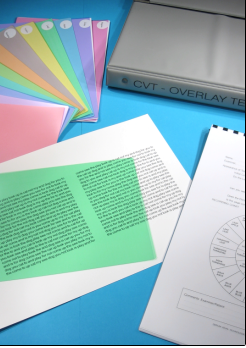"Getting help with my dyslexia meant I was able to do my job again"
Claudia.Cahalane | 22 Mar 2017Teresa started at Unilever in 1990 as an organic chemist. She couldn't tell her colleagues she wasn't able to read the names on chemicals. She thought she was stupid and had no idea she was severely dyslexic. Fifteen years and several promotions later, the pressure became intense. Teresa found herself off work for months with depression. But once she discovered she was dyslexic life changed for the better. She tells her story here.
 "In that first 15 years I got a degree in biochemistry and several promotions. Everyday I'd walk in hoping they didn’t find out how stupid I really was. And then I got a further promotion into clinical studies for some big name brands; I was given much more responsibility and had a budget to manage.
"In that first 15 years I got a degree in biochemistry and several promotions. Everyday I'd walk in hoping they didn’t find out how stupid I really was. And then I got a further promotion into clinical studies for some big name brands; I was given much more responsibility and had a budget to manage.
I loved the role and enjoyed solving problems, however, with it came the paperwork and time restrictions - this is where it became very difficult for me. I still didn't know if I was dyslexic. I was struggling.
I ended up off work for four months with depression because of the issues I was having. When I returned, my end of year performance assessment was due and my manager was furious at my performance.
Son's dyslexia test raised questions
I spoke in confidence to a colleague and said I suspected that - after seeing my nine year old son struggle at school and undergo a dyslexia assessment – that I had dyslexia myself.
We spoke to my union and HR and meanwhile my manager presented his case for disciplinary. HR asked whether there was anything they needed to be aware of and, at this point, I declared that I believed I was dyslexic.
They suggested I contact the British Dyslexia Association so I had a test with them and the score showed I was indeed severely dyslexic. The company doctor delivered the same results.
I was so relieved and I see it as a gift and not a burden, and never have. HR suggested I contact the government's Access to Work (something an employee has to do themselves) and the company said they'd help in any way needed.
The Access to Work process was very interesting. A woman came to work and asked me what I was good at. I said 'I only know what I'm bad at!'. She walked with me around my department and watched me work, then sat at my desk and then presented her report.
Tech solutions for managing dyslexia at work
My life radically changed that day. After her recommendations, my desk was moved into a better spot (less distracting and less glaring light, as I also have and eye condition called Irlen, which makes my eyes sensitive). I was also provided with grammar and spelling teaching software.
She suggested assistive IT - Dragon, Claro and Global Autocorrect and headphones to minimise distractions. I also now have overlays for my computer (these help with glare and enable people with dyslexia, Irlen and other conditions to better read text) and purple notepads – people with dyslexia or Irlen often see a certain colour best, it can be different for different people – mine is purple.

I've had some excellent strategy training and coaching for my dyslexia with a company called Genius to Work. Separately, my manager has also received training, which has helped enormously.
New ways of working with my team after my diagnosis
I've created a set of guidelines so that my project team are aware of my needs, ie how best to communicate with me – emails rather than verbally, so I don’t forget. This helps a lot. I also have coloured signs on my desk so people don’t distract me. So, I put up the red label if I'm concentrating and green when I'm available. I now concentrate for no more than 45 minutes and in that time focus on one task – to aid processing and clearer comprehension.
Previously I would have had loads of applications open and flip from Word to do a report, to Excel to do data. It meant my output was poor - I was doing everything and yet nothing.
Being independent at work with dyslexia
All these tools really help with my independence at work, and they provide my team with the confidence. Spelling mistakes in science really matter - it's only a single letter change between amines and amides, but my god one can react very differently to the other! I check things more regularly.
With all the support, I'm gaining my confidence back, enjoying reading teen fiction for pleasure and exploring my own creativity. At work, my manager recognises when I am struggling and allows me to take some time out so we can grab a coffee and chat.
I don't sneak into work any more hoping they won’t find out how stupid I am. My secret is out. I'm very clever. Clever because I hid my dyslexia all my life while getting a degree and my dream job.



